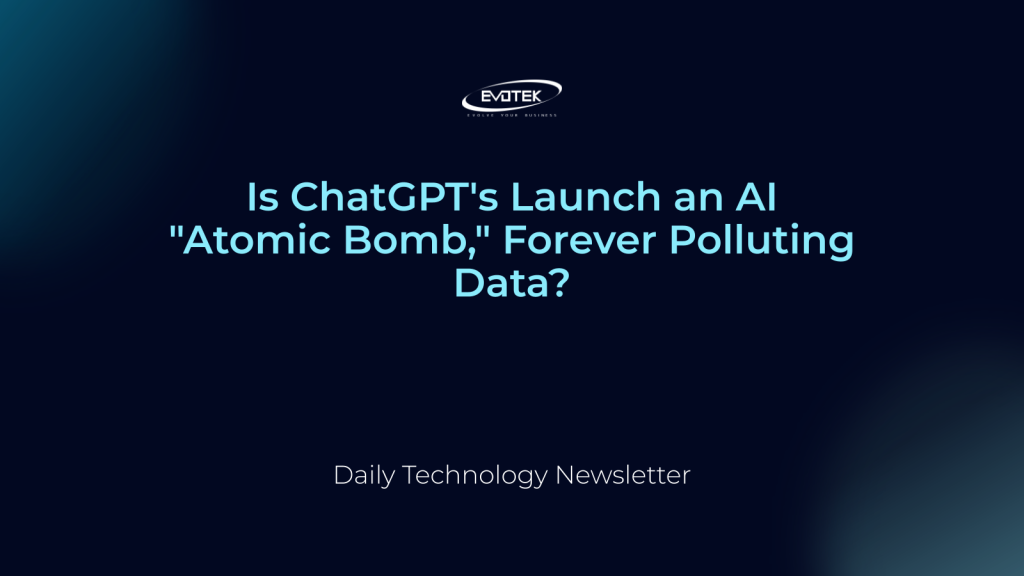The release of OpenAI’s ChatGPT is being compared to the dawn of the nuclear age, raising concerns about long-term data contamination and the need for “low-background steel” in the digital realm.
Just as post-Trinity atomic weapons testing contaminated metals, impacting sensitive equipment, some academics fear AI models are increasingly trained on AI-generated synthetic data. This cycle could lead to “AI model collapse,” where subsequent AI generations become progressively unreliable.
John Graham-Cumming, a board member, captured this sentiment by creating lowbackgroundsteel.ai, aiming to archive pre-2022 AI data sources. The core question is whether this contamination truly matters.
While some researchers are concerned about model collapse, others believe mitigation is possible. A recent Apple analysis faced challenges, highlighting the ongoing debate. A key concern is that access to “clean” data will give early AI market entrants a significant advantage, potentially stifling competition.
Experts like Maurice Chiodo emphasize that generative AI is polluting the data supply for everyone, and Rupprecht Podszun highlights the value of pre-2022 human interaction data for AI training.
Cleaning up this “AI pollution” poses policy challenges. Suggestions include mandatory AI content labeling and federated learning, which allows training on uncontaminated data without direct access. However, these approaches also present risks, such as privacy and security concerns with centralized data stores.
The ultimate concern is the potential impact on AI development itself. Government regulation may be necessary to ensure long-term, competitive AI development, learning from the digital revolution and avoiding market concentration.
The question remains: have we irreversibly contaminated our data environments, and if so, can we afford to clean it up?
Related Topics: AI, Data Science, Machine Learning, ChatGPT, OpenAI

 日本語
日本語 한국어
한국어 Tiếng Việt
Tiếng Việt 简体中文
简体中文